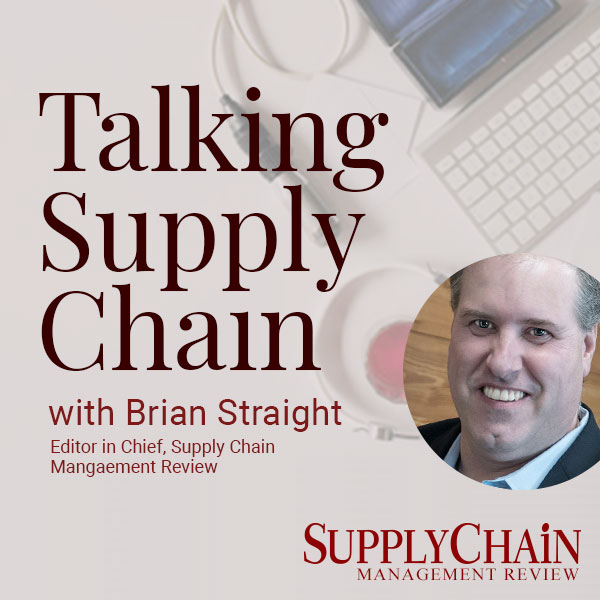Sorry, but your login has failed. Please recheck your login information and resubmit. If your subscription has expired, renew here.
March-April 2019
A few days ago, a colleague sent me “The Death of Supply Chain Management,” an article in the Harvard Business Review. If the title wasn’t enough to grab my attention, the last sentence in the first paragraph had me checking out job openings on LinkedIn: “Within five years to 10 years, the supply chain function may be obsolete, replaced by a smoothly running, selfregulating utility that ….. requires very little human attention.” Read more carefully, what the authors are really arguing is that as NextGen technologies find their place in our organizations, the role of the supply chain manager, including procurement managers, is going to… Browse this issue archive.Need Help? Contact customer service 847-559-7581 More options
Machine Learning (ML) models power technologies that recommend movies we might like, assist in detecting health risks, suggest routes to dodge traffic and beat world-class chess players. Over the last decade, we have witnessed an explosion of emerging ML-enabled solutions across industries from health care to supply chains, enhanced by algorithms capable of making better predictions based on past data. Yet, as the range of industry problems in which ML systems can play a role continues to expand, it is essential to separate the hype from the reality, and understand misconceptions about ML as well as its limitations. Companies also need to be aware of the skills they require to harness the benefits of ML.
Common ML misconceptions
In his seminal paper “Computing Machinery and Intelligence” published in 1950, Alan Turing introduced a test to assess whether or not a machine is capable of learning, of representing knowledge and of performing other cognitive functions generally associated with the human mind. Building on philosophical and technical arguments, Turing’s paper laid the foundations of modern ML, and more generally, of Artificial Intelligence.
The ML boom in recent years may mislead us to believe that ML systems are new. As the Turing paper shows, the scientific community has been developing this field for more than 60 years.

This complete article is available to subscribers only.
Log in now for full access or start your PLUS+ subscription for instant access.
SC
MR
Sorry, but your login has failed. Please recheck your login information and resubmit. If your subscription has expired, renew here.
March-April 2019
A few days ago, a colleague sent me “The Death of Supply Chain Management,” an article in the Harvard Business Review. If the title wasn’t enough to grab my attention, the last sentence in the first paragraph… Browse this issue archive. Access your online digital edition. Download a PDF file of the March-April 2019 issue.Machine Learning (ML) models power technologies that recommend movies we might like, assist in detecting health risks, suggest routes to dodge traffic and beat world-class chess players. Over the last decade, we have witnessed an explosion of emerging ML-enabled solutions across industries from health care to supply chains, enhanced by algorithms capable of making better predictions based on past data. Yet, as the range of industry problems in which ML systems can play a role continues to expand, it is essential to separate the hype from the reality, and understand misconceptions about ML as well as its limitations. Companies also need to be aware of the skills they require to harness the benefits of ML.
Common ML misconceptions
In his seminal paper “Computing Machinery and Intelligence” published in 1950, Alan Turing introduced a test to assess whether or not a machine is capable of learning, of representing knowledge and of performing other cognitive functions generally associated with the human mind. Building on philosophical and technical arguments, Turing's paper laid the foundations of modern ML, and more generally, of Artificial Intelligence.
The ML boom in recent years may mislead us to believe that ML systems are new. As the Turing paper shows, the scientific community has been developing this field for more than 60 years.
 SUBSCRIBERS: Click here to download PDF of the full article.
SUBSCRIBERS: Click here to download PDF of the full article.
SC
MR


More Events
- Next-Gen SupplyChains: Underpinning your ability to manage complexity and drive innovation
- The Future of Supply Chains: Next-Generation Technology and Beyond
- Thanks to all who made NextGen a success
- Medline Executives’ Keynote to Kick Off NextGen Supply Chain Conference
- NextGen Supply Chain Conference 2022: About our event
- Industry Innovators Take Home 2022 NextGen Supply Chain Awards
- More Events
Latest Podcast

 Explore
Explore
Topics
Software & Technology News
- Technology’s role in mending supply chain fragility after recent disruptions
- Tech investments bring revenue increases, survey finds
- Survey reveals strategies for addressing supply chain, logistics labor shortages
- AI, virtual reality is bringing experiential learning into the modern age
- Humanoid robots’ place in an intralogistics smart robot strategy
- Tips for CIOs to overcome technology talent acquisition troubles
- More Software & Technology
Latest Software & Technology Resources

Subscribe

Supply Chain Management Review delivers the best industry content.

Editors’ Picks






